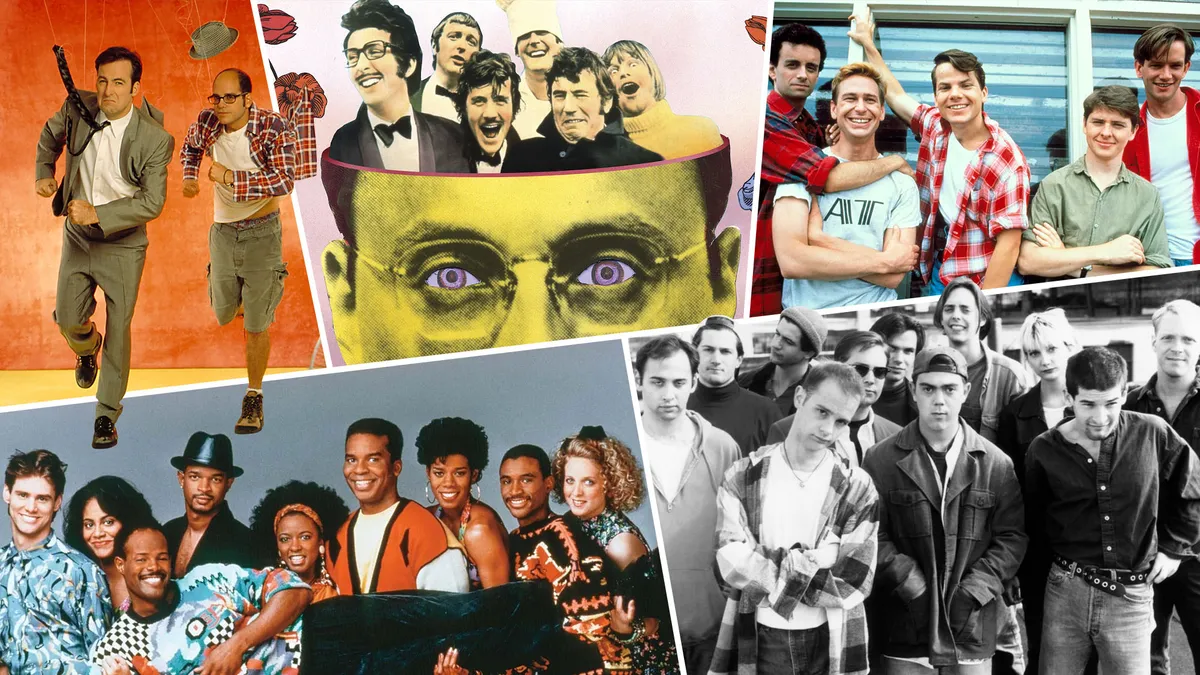Introduction
Welcome to the exhilarating world of sketch comedy! This dynamic form of comedy, popularized by shows like “Saturday Night Live,” “Monty Python’s Flying Circus,” “In Living Color,” and “MADtv,” involves short, humorous scenes or vignettes, usually scripted and rehearsed but sometimes improvised. If you’ve ever dreamed of making people laugh with original, witty sketches, you’re in the right place. This guide will walk you through the steps of creating your own sketch comedy, from the initial idea to the final performance.
Table of Contents
Understanding Sketch Comedy
- Definition and History
- Key Elements of a Successful Sketch
Finding Your Inspiration
- Observing the World Around You
- Drawing from Personal Experiences
Writing Your Sketch
- Structuring Your Script
- Developing Characters and Setting
- Crafting the Setup, Conflict, and Punchline
Assembling Your Team
- Casting Actors
- Roles and Responsibilities in Production
Rehearsing Your Sketch
- The Importance of Timing
- Fine-Tuning Performances
Producing Your Sketch
- Choosing a Venue or Platform
- Props, Costumes, and Technical Needs
Performing and Recording
- Live Performance Tips
- Recording and Editing for Digital Platforms
Promoting Your Sketch
- Utilizing Social Media
- Engaging with Your Audience
Learning from Feedback
- Analyzing Audience Reactions
- Iterative Improvements for Future Sketches
Staying Inspired and Motivated
- Continuous Learning from the Greats
- Joining a Sketch Comedy Community
Conclusion
FAQs
- How long should a sketch be?
- Can I do sketch comedy solo?
- What if my first sketch isn’t well-received?
1. Understanding Sketch Comedy
Definition and History
Sketch comedy consists of short comedy scenes, often characterized by satirical takes, slapstick humor, and cultural commentary. Tracing its roots back to vaudeville and variety shows, sketch comedy has evolved but remains a staple of entertainment, capturing audiences’ imaginations with its quick wit and relatable humor.
Key Elements of a Successful Sketch
A memorable sketch comedy hinges on relatability, surprise, and brevity. Understanding these elements and incorporating them into your work is crucial for engaging your audience.
2. Finding Your Inspiration
Observing the World Around You
Great sketches often begin with keen observation. Whether it’s the absurdity of daily life, a news headline, or a universal experience, the world is ripe with inspiration.
Drawing from Personal Experiences
Personal anecdotes and experiences can lead to some of the most authentic and hilarious sketches. Dive into your own life for unique stories that audiences can connect with.
3. Writing Your Sketch
Structuring Your Script
Learn about the classic three-act structure—setup, confrontation, and resolution—and how to apply it to a brief sketch format.
Developing Characters and Setting
Characters are the heart of your sketch. Explore how to create vivid, memorable characters and settings that enhance your comedic premise.
Crafting the Setup, Conflict, and Punchline
Discover the art of setting up your joke, building conflict, and delivering a punchline that packs a comedic punch.
4. Assembling Your Team
Casting Actors
Find out how to select the right performers for your sketch, considering not just talent but chemistry and timing.
Roles and Responsibilities in Production
Dive into the roles needed beyond the actors, including directors, writers, and crew, and understand their contributions to bringing your sketch to life.
5. Rehearsing Your Sketch
The Importance of Timing
Timing is everything in comedy. Learn techniques for hitting the right comedic beats.
Fine-Tuning Performances
Rehearsal is where the magic happens. Tips for refining performances and ensuring every joke lands.
6. Producing Your Sketch
Choosing a Venue or Platform
Whether it’s live on stage or online, choosing the right platform for your sketch is key. Weigh the pros and cons of each.
Props, Costumes, and Technical Needs
Get into the nitty-gritty of what you’ll need to bring your sketch to life, from the simplest prop to the most elaborate costume.
7. Performing and Recording
Live Performance Tips
Conquer stage fright and connect with your live audience with these performance strategies.
Recording and Editing for Digital Platforms
For those going digital, learn the basics of recording, editing, and creating a sketch that shines online.
8. Promoting Your Sketch
Utilizing Social Media
Social media can be a powerful tool for promotion. Uncover strategies for using platforms to your advantage.
Engaging with Your Audience
Building a community around your comedy can turn viewers into fans. Explore ways to interact and engage.
9. Learning from Feedback
Analyzing Audience Reactions
Feedback is a goldmine for improvement. Learn how to solicit and interpret audience reactions for better future sketches.
Iterative Improvements for Future Sketches
Comedy is a process. Use what you’ve learned to refine and improve your subsequent sketches.
10. Staying Inspired and Motivated
Continuous Learning from the Greats
Study the masters of sketch comedy for inspiration and insight into what makes a sketch work.
Joining a Sketch Comedy Community
Discover the benefits of connecting with other comedians and creators, from collaboration opportunities to moral support.
11. Conclusion
Embarking on your sketch comedy journey is an exciting adventure filled with laughter, learning, and creativity. By following these steps and staying committed to your craft, you’ll not only entertain others but also discover your unique comedic voice.
12. FAQs
How long should a sketch be?
Sketch lengths vary, but a good rule of thumb is 3-5 minutes. Keep it concise to maintain your audience’s attention.
Can I do sketch comedy solo?
Absolutely! Solo sketches can be just as effective, especially with the right character or premise.
What if my first sketch isn’t well-received?
Comedy is subjective, and not every piece will be a hit. Use it as a learning experience and keep creating.
This comprehensive guide aims to equip you with the knowledge and tools to start your journey into sketch comedy. Remember, every comedian started somewhere, and with passion, persistence, and a bit of humor, you’ll find your way. Happy sketching!

